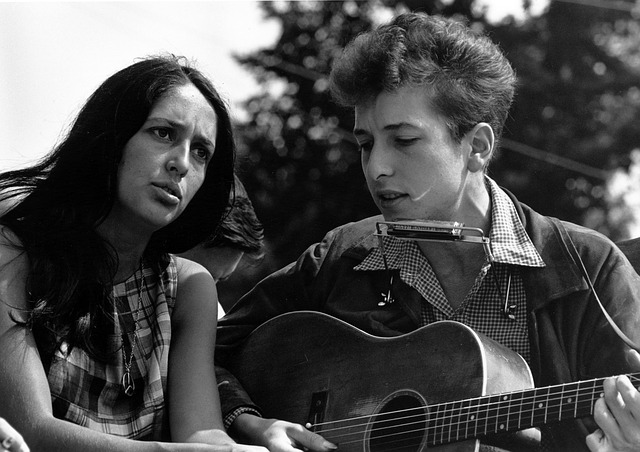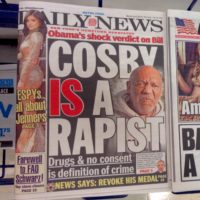
The Artistry of Bob Dylan
There are two types of performers, artists and entertainers, and I highly recommend that you don’t go messing up the two. Entertainers are there for your benefit and enjoyment. Artists are there solely for theirs. Over a career that has spanned nearly sixty years, Bob Dylan has always been an adamant part of the latter category. I had a chance to see him live recently, and how you viewed this concert depended largely on what you expected from him and his performance.
Now I had seen Dylan twice before with two widely divergent results that were principally attributable to his varying degree of intoxication. The first time I saw him, he could barely stand upright, and his slurring of words was so pronounced that you couldn’t make out a damn thing he sang, if you could actually interpret his mumblings as singing. But the second time I saw him was in a small venue in Burlington, Vermont, and he was lucid and sublime. In fact, before the show started the other night, my friend Matt and I were discussing our relative past experiences seeing Dylan, and he described one night that was “downright shitty” and another that was “transcendent”. So going into the show the other night, I knew it was likely to be one or the other of those two dichotomous extremes, and that we would be able to discern which it would be after hearing Dylan either belt out or garble just a few short lines.
And to my great delight, it was definitely the former. Even at age 81, Dylan was engaged and energetic, playing guitar for a prolonged instrumental opener before switching to piano for the remainder of the evening. His band was tight and inspired, providing a melodic backdrop that was seamless in its accompaniment. They played for just short of two hours with no encore whatsoever. And even though Bob Dylan has a voluminous catalog of songs that pretty much everyone in that audience knew by heart and expected him to play, he played absolutely none of them. Even die-hard Dylan fans, like my former roommate from college, could not have picked a single song they played out of a police lineup.
Of course, Bob Dylan is no dummy. He knows exactly what songs his audience wants to hear, classic anthems of the 60’s and 70’s such as “Like a Rolling Stone”, “Tangled Up in Blue”, “It Aint Me Babe”, etc, etc, etc. But Bob Dylan clearly didn’t give a shit what anyone wanted to hear. He played what he wanted to play, and you could either take it or leave it as far as he was concerned. You either appreciated the musical genius and artistry he provided you or you could pleasantly, or not so pleasantly as the case may be, fuck off.

I remember years ago hearing an interview with Rod Stewart asking him what songs he loved to play in concert. When he responded with “Maggie May”, the interviewer was taken aback, stunned that Stewart would respond with a song he had sung pretty much every single night of his long, illustrious career. But Stewart rejoined that he loved playing that song because it was the one that audiences most wanted to hear, that they had come hoping to hear it and that he relished the opportunity to fulfill that longing. That’s because Rod Stewart is an entertainer at heart. He performs with the sole intent of providing joy to those who come to see him. That’s what makes an entertainer.
But that has never been Bob Dylan. Back when I was in college, that same roommate I mentioned earlier made me watch a two-hour documentary on Dylan. To be honest, it was often difficult to watch. Dylan generally exudes a caustic intelligence and arrogance that is both pervasive and off-putting. He knows that he is the smartest person in the room and lets you know it. When being surrounded by interviewers asking him questions, his retorts are often demeaning and deliberately patronizing. He does not suffer fools, and is more than happy to expose their ignorance through quips that can reduce them to a mere shadow of their usual selves. That is because Dylan is an artist, and artists aren’t there for your amusement. They are there for the art, and the audience is simply the financial expediency for providing them the opportunity to perform.
When Dylan got up and played a two-hour show without a single song that anyone knew, he was making a statement. He was telling his audience that he was playing for himself and his art, not them. When I turned to my buddy Matt and suggested that the show reminded me of Tom Waits and he responded with Leonard Cohen, we both inherently grasped the rarified air that those compliments were intended to suggest. I wasn’t familiar with the songs, but the music itself was glorious. For those who cared to listen to the music for the sake of the music itself, to listen with the aesthetic sensibility of appreciating art for art’s sake, they were treated to a divine moment by an aging legend whose only allegiance is to the music he plays. But for those who went in with the expectation of hearing what they themselves wanted to hear, they left highly disappointed by an artist who refused to yield his vision to their desires.
There is a time and place in this world for both entertainers and artists, for those who perform for the audience and those who perform for the art. But with an ever-increasing commercialism comes fewer and fewer artists, those who would forsake the accolades and material rewards entertaining provides out of a dedication to the purity of the art they create. Go watch Journey the next time they come to your town and sing along with every former hit they break out for you because they know that’s what you want to hear, but appreciate the artists when you have the occasion to revel in their presence. Those moments, after all, are just blowin’ in the wind.
Steven Craig is the author of the best-selling novel WAITING FOR TODAY, as well as numerous published poems, short stories, and dramatic works. Read his blog TRUTH: In 1000 Words or Less every THURSDAY at www.waitingfortoday.com



